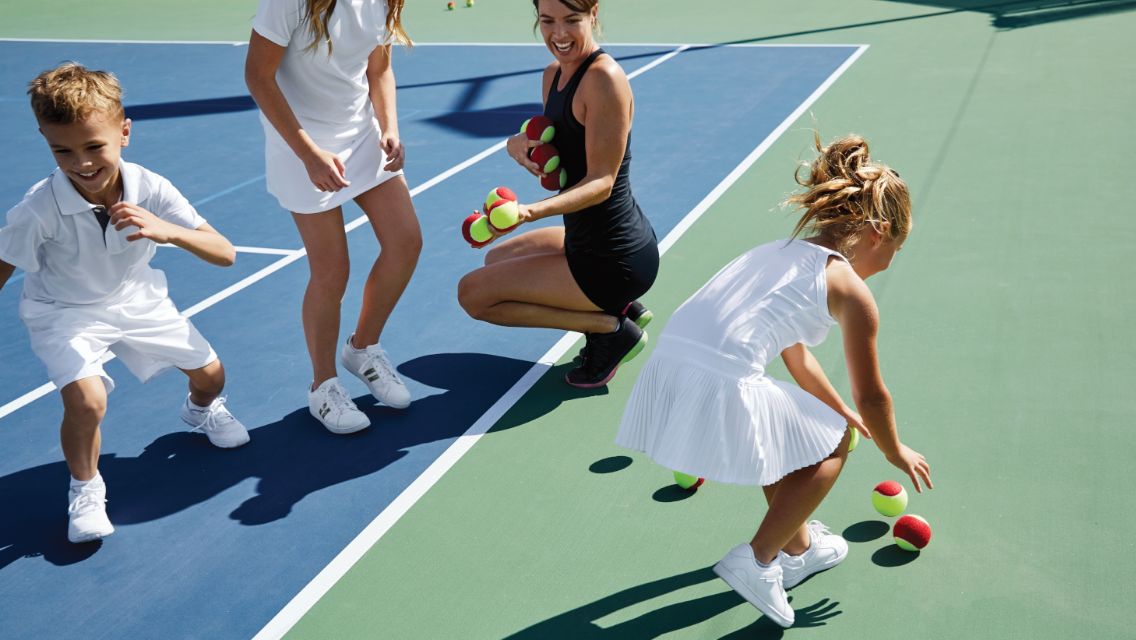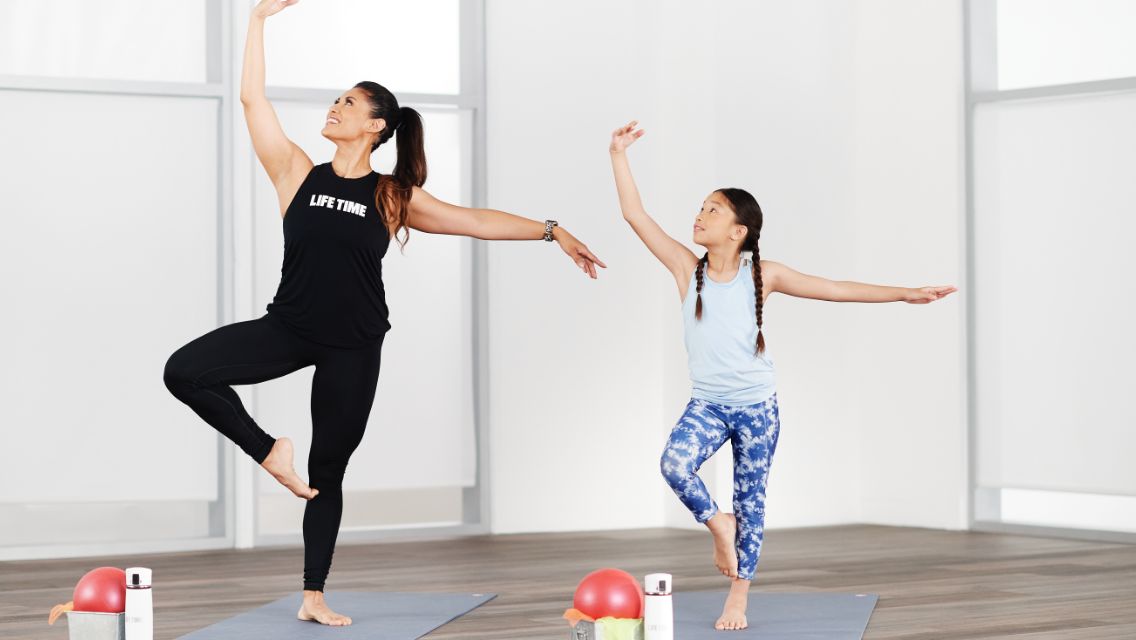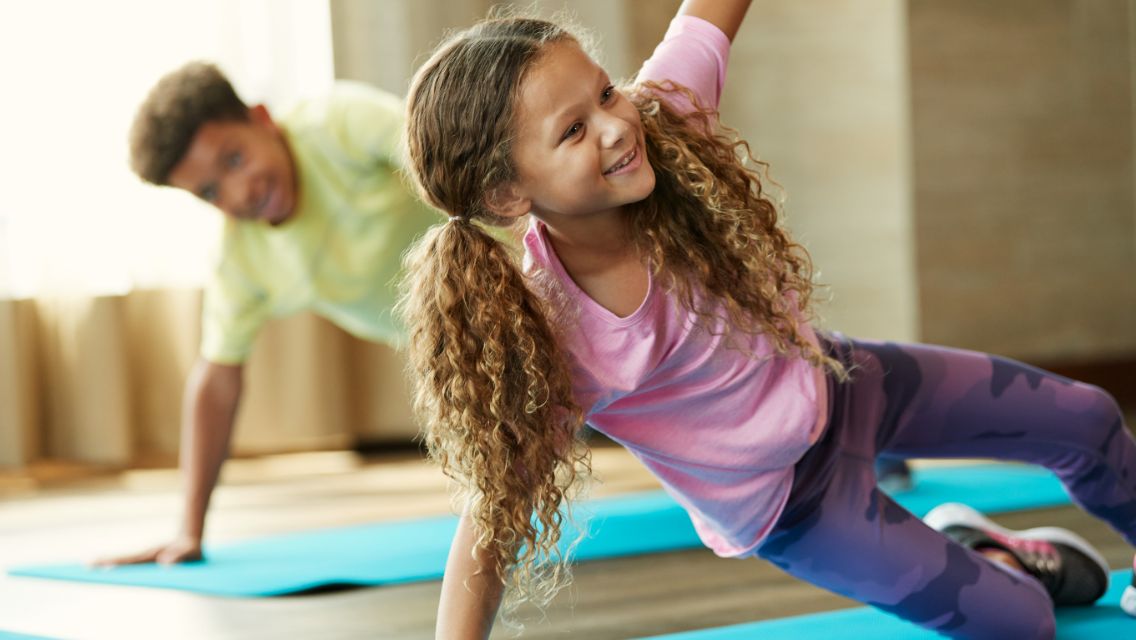As a parent, it can be easy to get caught up in the stress of shuffling your kids around from one extracurricular activity to the next. You might wonder sometimes, Is it worth it?
Tori Limmel, kids curriculum manager at Life Time, maintains that the answer is yes. Group activities, she says, can provide kids with benefits and skills that they can apply to other areas of their lives.
“When kids participate in activities in a group setting, they learn from, and by being around, one another,” says Limmel. “Depending on the activity, they may have the advantages of keeping active, building teamworking skills, or furthering their creativity, for example. But in general, most group activities can help kids develop social, cognitive, and gross motor skills. These are lifelong abilities.”
Limmel also believes that participating in group activities is imperative to a child’s academic, physical, and social success. “In a group setting, children are interacting with peers they might not otherwise engage with,” she says. “They can make friends and learn from each other. Collaboration and communication skills are valuable across many of the environments and situations kids will be in throughout their lives. Children also tend to be happier when they play together.”
Limmel explains more about three key benefits that can be gained through participation in group activities.
1. Social Skills
Group activities are social settings where kids can play together and build friendships, while also learning to listen to and work with others. “Social interactions are built into games and activities, allowing children to naturally learn through the experience,” Limmel explains. “They learn how to get along with others, and work together toward a goal. They learn how to give and receive praise, ways to compromise, and how to lose respectfully.”
These common experiences foster friendships, which contribute to kids’ sense of belonging.
“We see these social skills developing every day through nearly every one of our Kids Academy offerings,” Limmel says. “Whether playing a gym game, building a tower in a S.T.E.A.M. class, or sharpening sports skills, children learn about taking turns, using their manners, and sharing.”
2. Cognitive Skills
Activities featuring a cognitive component can encourage kids to explore new ways of thinking, ask questions, and problem-solve, as well as strengthen memory, attention, processing, and reasoning abilities.
“You can see these skills applied when kids play games in the gym, for example,” says Limmel. “They’re paying attention to the constraints and rules of the game, working to remember those rules, discovering strategies for play, and then processing the information in order to physically participate in the game. Throughout games, children also need to evaluate situations, work with their peers to problem-solve, and make quick decisions.”
The S.T.E.A.M. and Create and Build classes and art activities at Life Time are particularly great for promoting critical and creative thinking. “These activities often have an end goal in mind,” Limmel explains. “Maybe it’s finding a solution to a problem or thinking creatively to have artwork look a certain way. In all these classes, children are encouraged to ask questions, observe, and make inferences.
“In S.T.E.A.M. classes specifically,” she continues, “a problem is presented, children are given constraints around how to accomplish the task, and then they are asked to analyze the given information to create something to solve their problem. After their creation is complete, the next step is to then evaluate it and identify any areas of improvement.”
3. Gross Motor Skills
Gross motor skills are required for movements of large muscle groups, such as those in the arms, legs, and torso. Kids can strengthen these skills through the repetition of certain activities, particularly ones that involve walking, crawling, running, jumping, lifting, throwing, or climbing.
Many group activities are centered around sports or other physical games in which these actions are featured. In these situations, kids are often challenging their strength, coordination, balance, and reaction time through various movements.
In a game of freeze tag, for example, children need to exercise speed, coordination, and swift response timing, all while running to avoid being tagged. Once tagged, they balance in a frozen position until freed by another player.
“Having your kid participate in a movement-focused class each week can help them improve in these areas and get in the habit of fitness being a part of their routine,” notes Limmel. “Many parents at Life Time love the Kids Studio and Fitness & Agility classes. Kids Studio Classes are kid-friendly versions of our adult group fitness classes, and Fitness & Agility classes help kids build athletic confidence. Those — as well as our gym games, tumbling classes, and rock climbing offerings — include movements and drills that challenge and help kids develop gross motor skills, while also releasing excess energy.”





